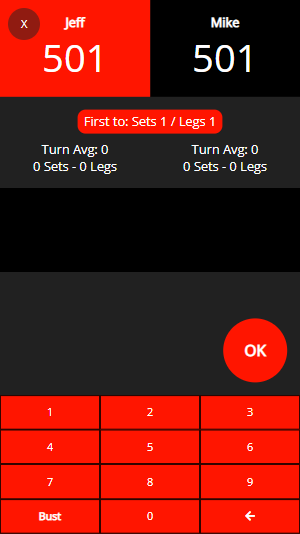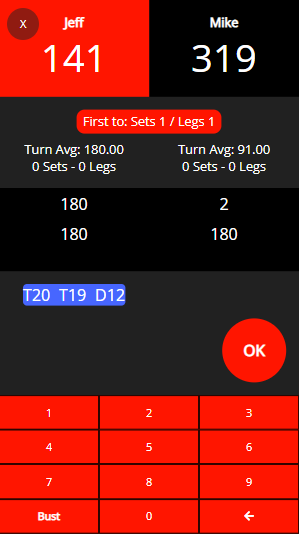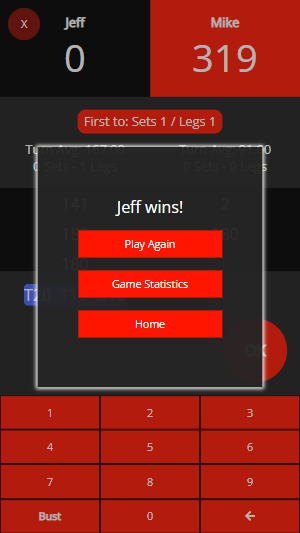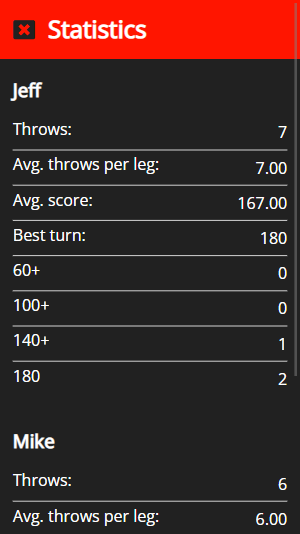Methods Used
Functions
Increased readability and modularity throughout the program. Also decreased the repetitiveness of the code where possible.
Objects
Custom made objects were used to check for possible checkouts when a certain score was reached. The objects were iterated over, looking for a value to be matched, and assigned the key to an output to give the user their best possible checkout route.
Global Arrays
Utilised for checking impossible scores, impossible finishes and assigning each players' scores list
Global Variables
Were used for things such as: points, legs, sets and statistics; which had to be updated constantly
Modals
Allowed different screens to be accessed, without having to refresh the page, when working with this Single Page Application.
Comments
Increased readability and broke the code up into sections



